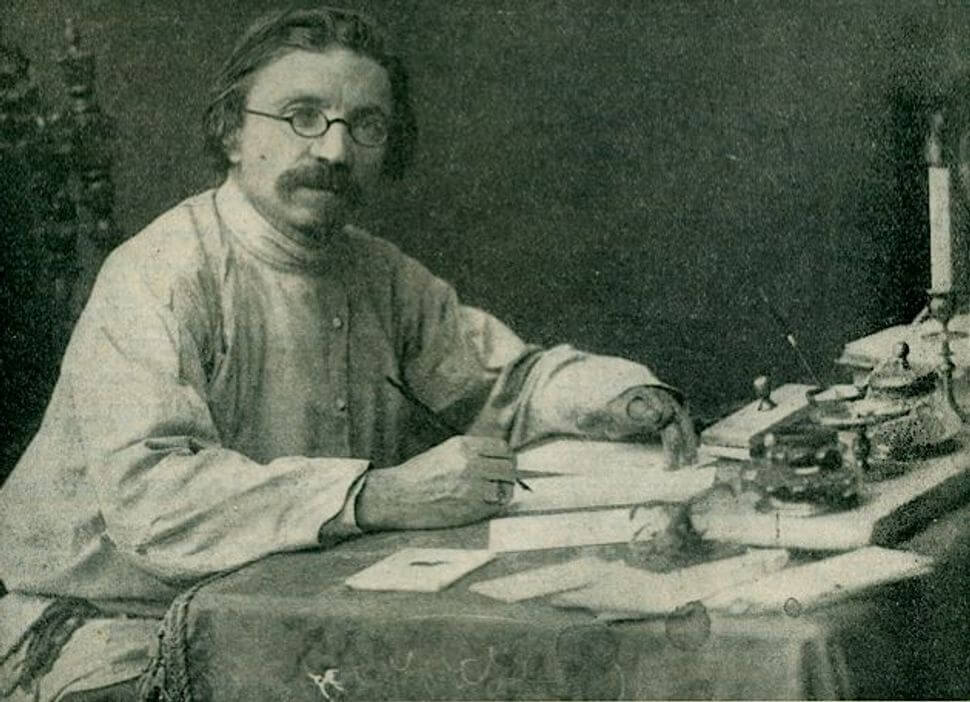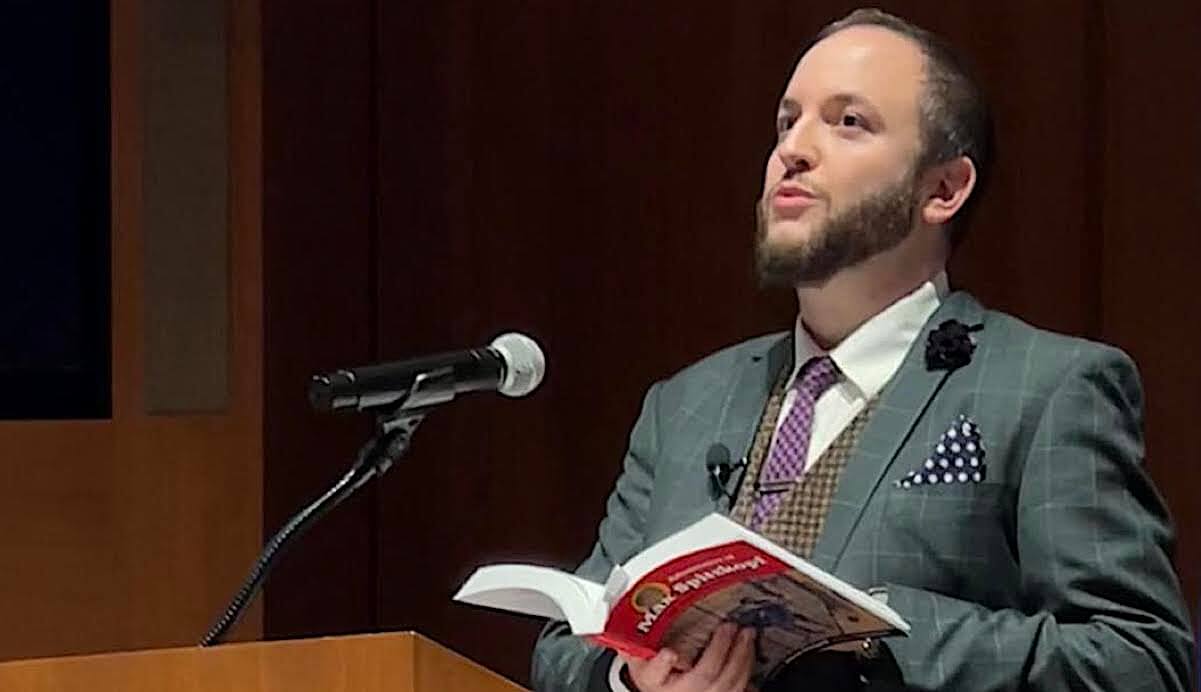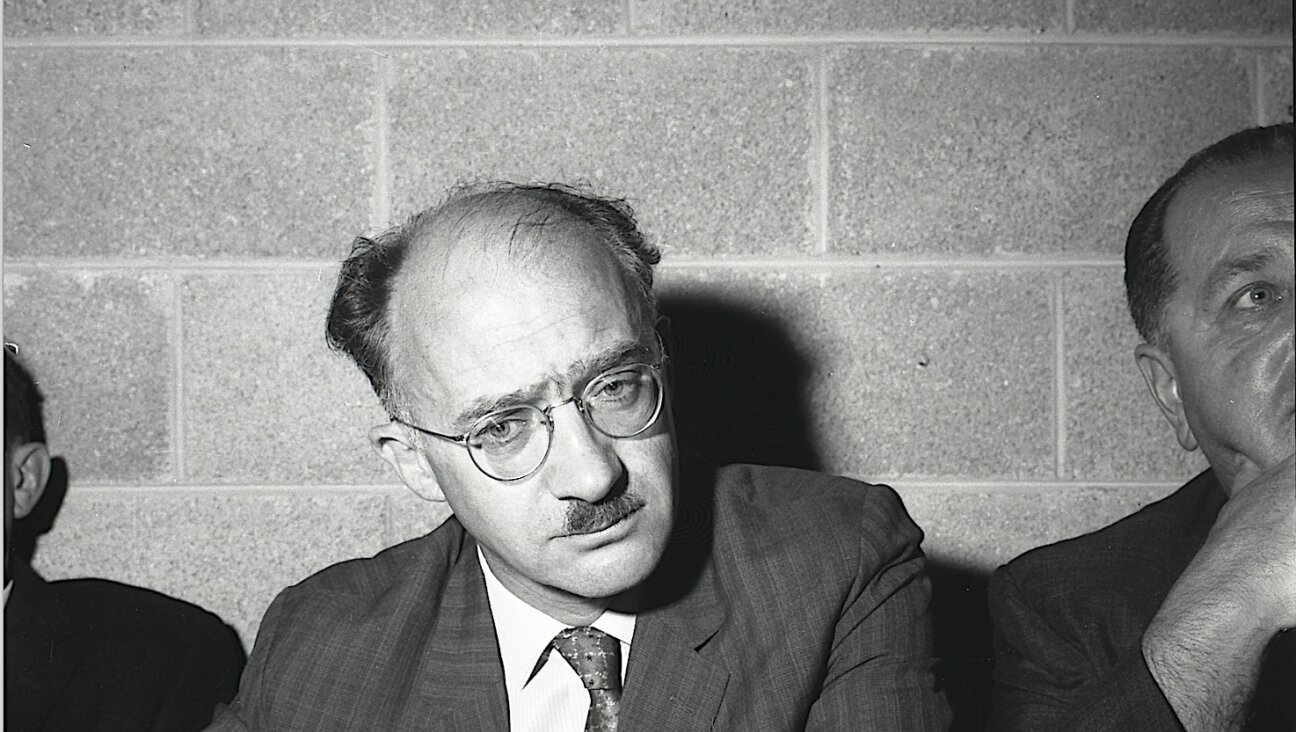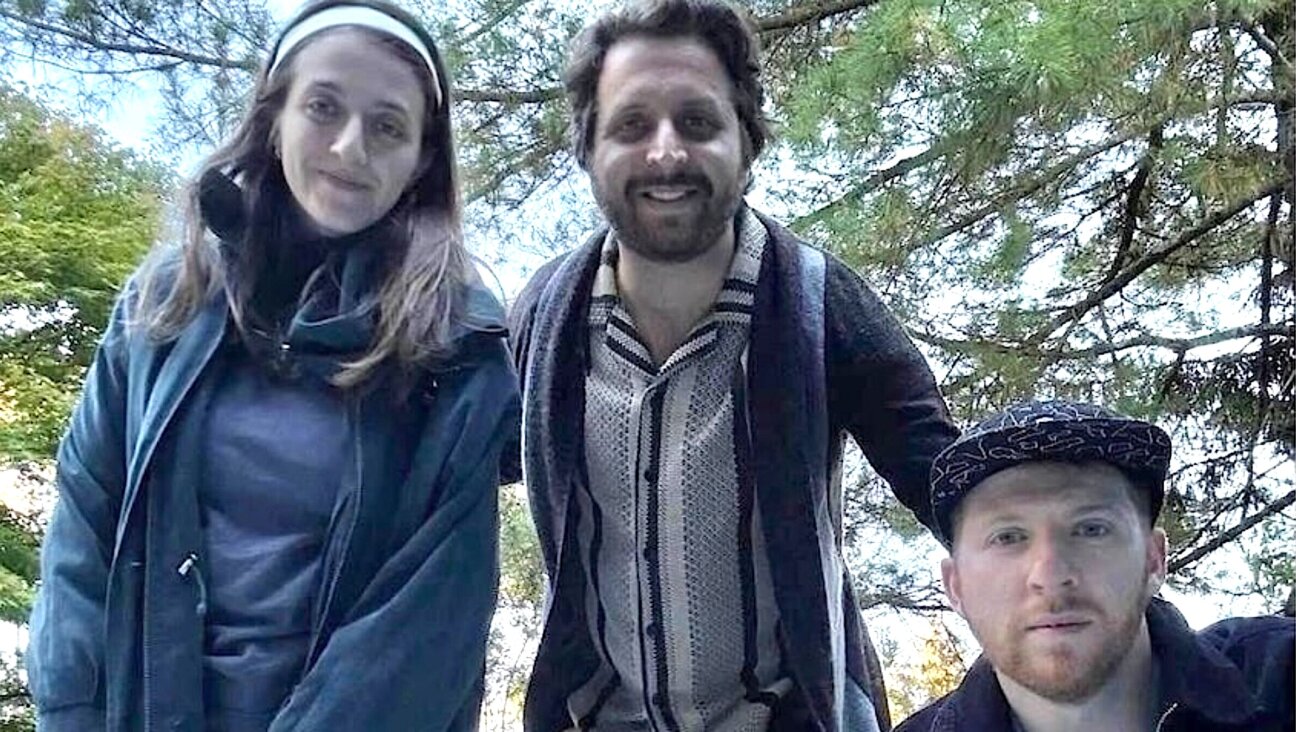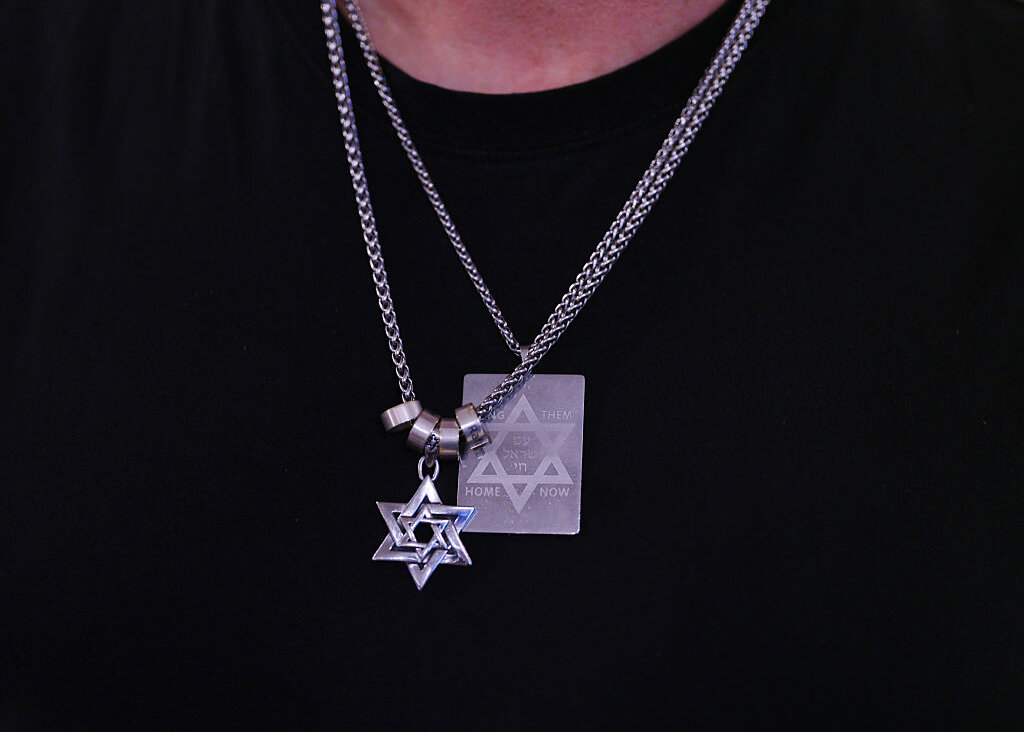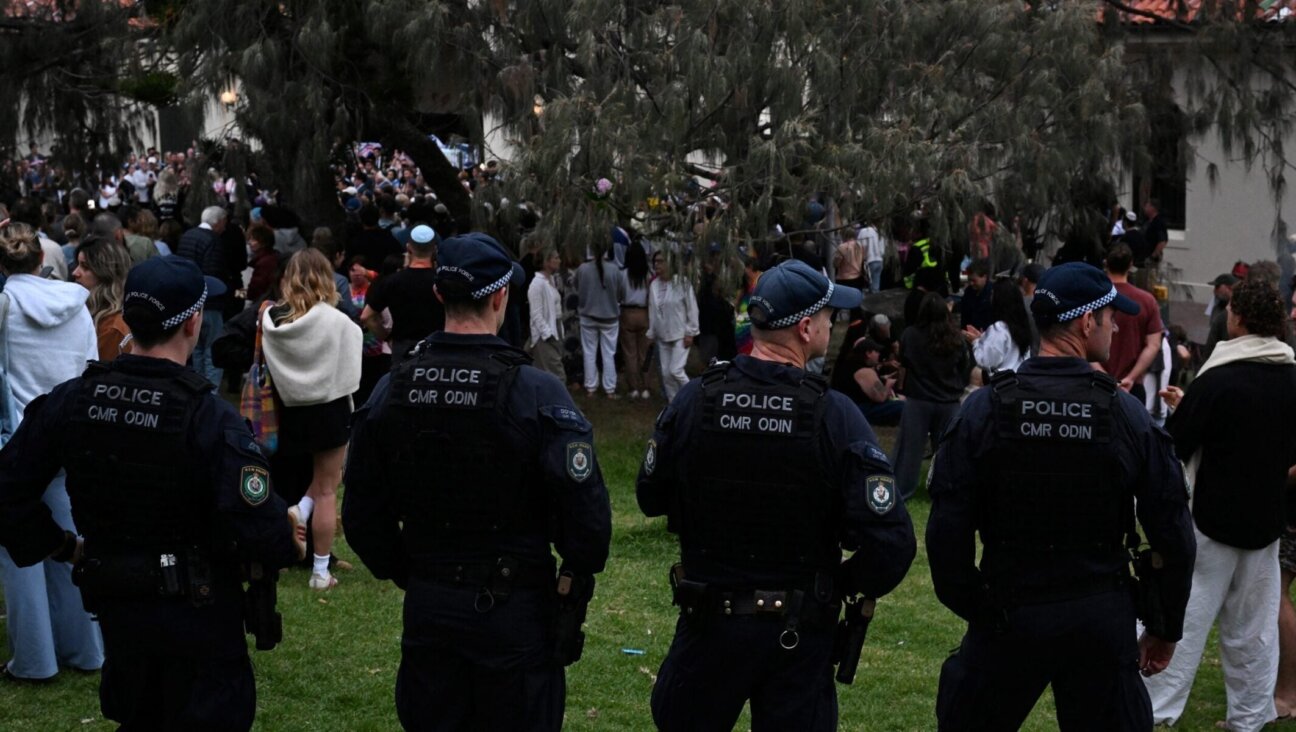לערי דייווידס סקעטש וועגן חורבן־שיך איז אַ קריטיק פֿון גלײַכגילט צום חורבן בכללLarry David’s Holocaust shoes sketch critiques society’s indifference to the Holocaust
וואָס ווייניקער לעבן־געבליבענע עס זענען נאָך דאָ, אַלץ ווייניקער פֿאַרשטייט מען וואָס עס איז געשען אין די אַכזריותדיקע יאָרן פֿון דער נאַצישער ממשלה.

Image by youtube
כ׳קען נישט לערי דייווידן און ווייס גאָרנישט וועגן דעם סטיל פֿון זײַן הומאָר. אויב אַ מענטש וואָלט טאַקע געגנבֿעט אין אַ חורבן־מוזיי אַ פּאָר שיך פֿון איינעם אַ קדוש, וואָלט דאָס בלי־ספֿק געווען נישט סתּם אַ פּּשוטע גנבֿה, נאָר אַ פֿאַרשוועכונג פֿון די זעקס מיליאָן קרבנות, ממש אַ מין חילול־השם.
נאָר וואָס טוט דייוויד אין זײַן סקעטש? ער מאָלט אויס דאָס בילד פֿון אַ פֿײַערלעכן ווערניסאַזש: האַלטנדיק די גלעזלעך שאַמפּאַניע אין די הענט שמועסט מען וועגן דאָס און יענץ, מאַכט סמאָל־טאָק און אַפֿילו וויצן. ווען איינע אַ פֿרוי וואָלט נישט דערמאָנט די חבֿרים אַז מ׳איז אין אַ חורבן־מוזיי, וואָלט עס דער עולם זיכער נישט דערשמעקט.
אין דעם מין אַטמאָספֿער דערזעט דער באָרוועסער לערי די קופּע שיך, אַ סגולה פֿאַר די צרות זײַנע און ער טוט דאָס וואָס באַשײַמפּערלעך אַלע מענטשן אין דעם מוזיי טוען עס — ער פֿאַרגעסט אין די קרבנות און טראַכט נאָר וועגן די אייגענע נאַקעטע פֿיס.
דייווידן געלינגט מיט דעם אַ גלענצנדיקע, כאָטש פּּראָוואָצירנדיקע קריטיק פֿונעם שטייגער חורבן־דערמאָנונג וואָס האָט זיך צעוואַקסן די לעצטע צוויי, דרײַ צענדליק יאָר. וואָס ווייניקער לעבן־געבליבענע עס זענען נאָך פֿאַראַן, אַלץ מער מוזייען קומען אויף און אַלץ ווייניקער פֿאַרשטייען די מענטשן וואָס עס איז טאַקע געשען אין יענע שרעקלעכע, אַכזריותדיקע יאָרן פֿון דער נאַצישער ממשלה. מע טרינקט שאַמפּּאַניע אין חורבן־מוזיי און אין דרויסן דערשיסט מען אין אַ שיל ייִדן אויף טויט. האָט די וועלט זיך עפּעס געלערנט פֿונעם חורבן? ווײַזט אויס נאָר אַ קנאַפּּע לעקציע.
יאָ, דייווידס סקעטש קען מען פֿאַרשטיין אַלס אַ באַליידיקונג פֿאַר די קרבנות, אָבער דער עיקר איז עס אַן אָנקלאָג קעגן אונדזער גלײַכגילט.
